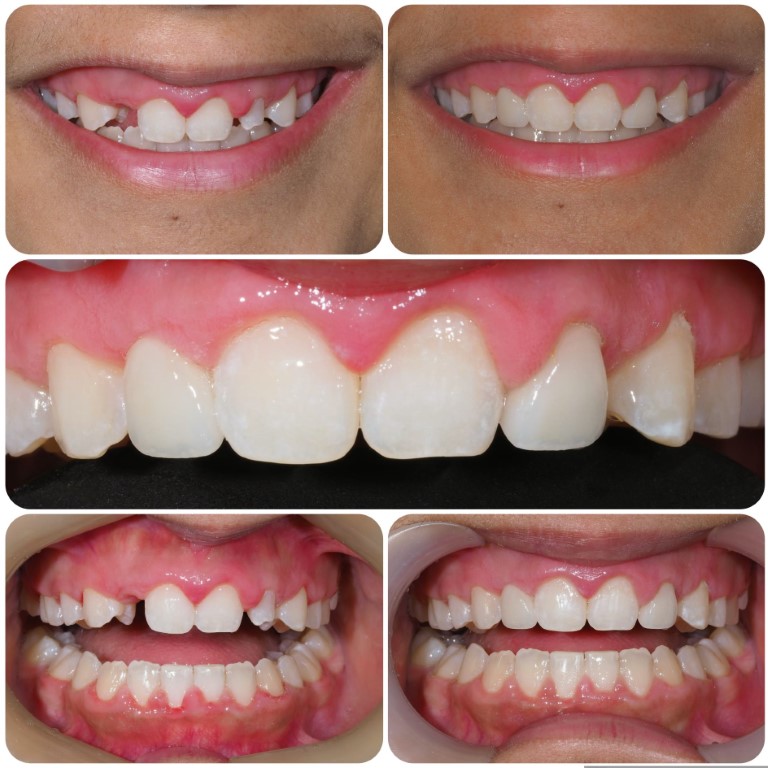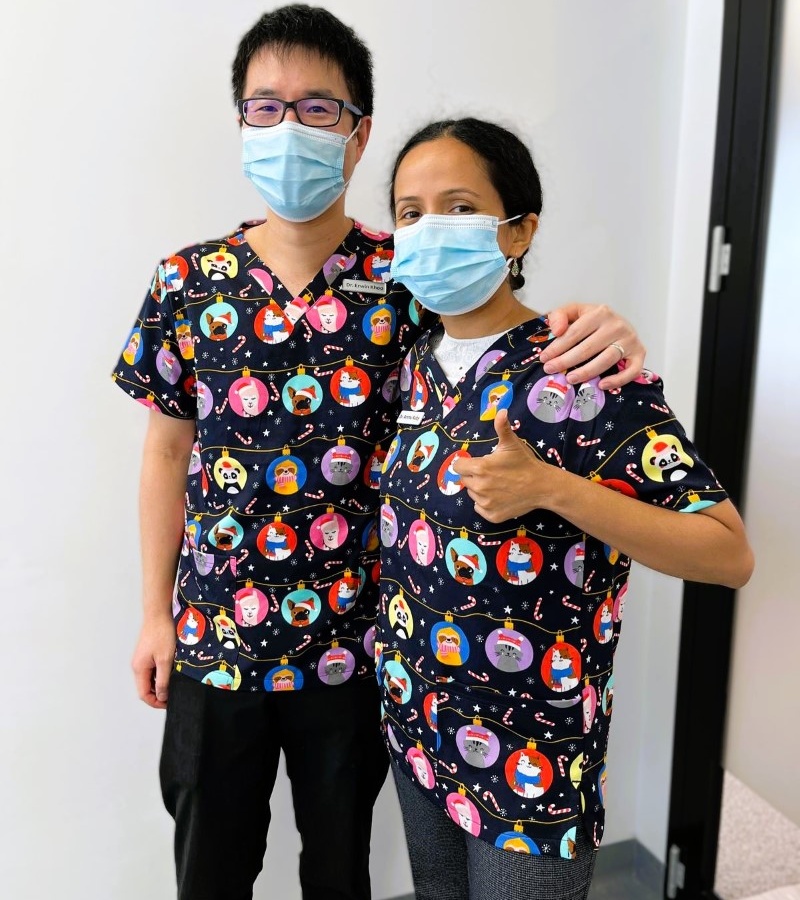What is a tooth abscess?
A tooth abscess is a painful and potentially serious dental condition that arises from a bacterial infection, often resulting from untreated tooth decay, gum disease, or dental trauma. A Dental Abscess involves the accumulation of pus within the tooth or in the surrounding tissues, leading to swelling, severe pain, and potential complications.

Causes
A tooth abscess is typically caused by a bacterial infection stemming from untreated dental issues like tooth decay, gum disease, or dental trauma.
Symptoms
Here are some common signs of a dental abscess:
Severe Toothache
Persistent and intense pain, often radiating to the jaw, neck, or ear on the side of the affected tooth.
Pimple on Gums
Formation of a pimple-like bump (dental abscess) on the gums, often accompanied by pus drainage.
Swelling
Swelling of the face, cheek, or gums near the affected tooth, indicating inflammation.
Painful Chewing
Discomfort or pain while chewing or biting due to pressure on the abscess.
Bitter Taste
An unpleasant or bitter taste in the mouth caused by the drainage of pus.
Fever
Systemic symptoms like fever, signaling the body’s response to the infection.
Treatment
Tooth Abscess Drainage
Drainage of the abscess is a crucial step in relieving pain and reducing pressure associated with the infection.
Root Canal Therapy for Tooth Abscess
In cases where the tooth abscess involves the tooth’s pulp, a root canal treatment will be required. This involves the removal of infected tissue and meticulous sealing of the canal to ensure effective resolution, sometimes over multiple visits.
Removal of the tooth (Extraction)
Severe instances of a tooth abscess may necessitate tooth extraction.
Prescription Antibiotics
Avoid routine antibiotic use for tooth abscesses as it doesn’t address the issue and can harm overall health. Targeted prescription antibiotics are only necessary in very select cases.
Pain Management
Targeted pain relief may be required to manage discomfort throughout the tooth abscess treatment and recovery period.
Resolution of Underlying Issues Causing the Tooth Abscess
Identifying and systematically resolving underlying causes, such as decay or gum disease, is fundamental to preventing recurrent tooth abscess occurrences.
Prompt professional care is crucial when suspecting a tooth abscess for optimal dental well-being. Ignoring or self-treatment can result in severe complications, emphasising the need for comprehensive dental intervention to prevent risks like facial swellings and septicaemia.

Contact Cranbourne North Dental For Tooth Abscess
If you have an infected tooth, Cranbourne North Dental can help. Our experienced team will assess your situation, identify the underlying cause, and provide personalised solutions to improve your oral health. Don’t let your tooth abscess affect your oral health — schedule a consultation with us today and take the first step towards healthier teeth.
Our Treatments
Frequently Asked Questions

I don’t have any pain with my abscess, is that normal?
A tooth abscess is a swelling of pus and inflammatory exudate that occurs near the base of a tooth root when the tooth is infected. Interestingly, you do not always have pain even with a big problem like this. This is because the nerve of the tooth has died and the tooth has no more feeling of pain. Pain can later develop due to the pressure of the abscess on surrounding tissues.
A tooth abscess can be life threatening so it is important to seek urgent care! It can spread to other areas of your mouth and affect swallowing and breathing. Increased bacteria in the bloodstream can also increase the risk of Septicaemia which can be a dangerous medical condition when bacteria enter the bloodstream.
Should I pop my tooth abscess?
Popping a tooth abscess may seem like a good idea but it is not as simple as popping a pimple. Drainage of an abscess must be done cleanly so as not to introduce any other bacteria in the area to increase risk of other infections.
It is also dangerous to do this without ascertaining the cause of the tooth abscess and if it is actually an abscess. It is best to leave it and seek urgent care with a dental professional so they can review how the abscess looks and do appropriate testing and treatment.
What can I do at home if I have a tooth abscess and I can’t see the dentist yet?
The main thing would be to take painkillers to manage the pain (if any). Monitor the size of the abscess closely, do warm salty water mouth rinses and keep the area clean.
You will need to see a dental professional so it is important not to delay it for too long.
If at any stage, the abscess is growing, becoming a facial swelling or affecting swallowing or breathing – you must take urgent action! If swallowing or breathing is affected, you must dial 000!




















